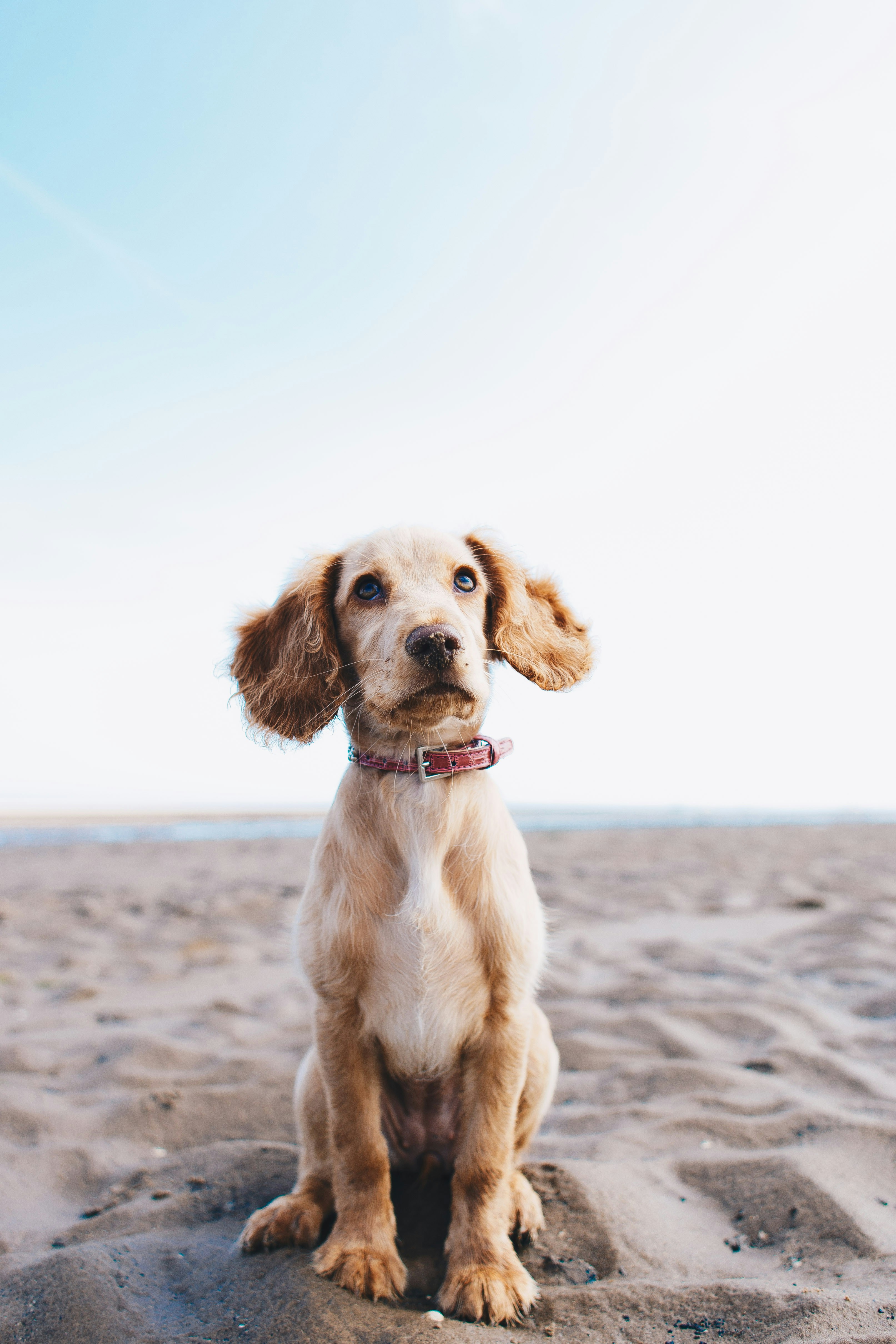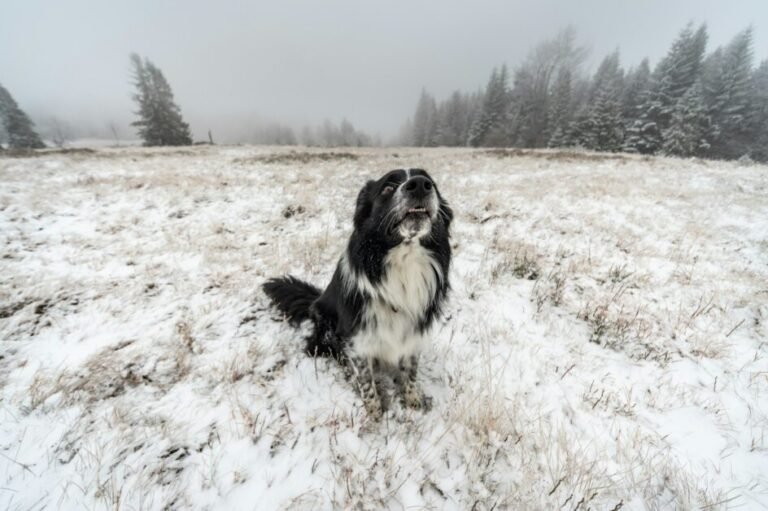Winter Care Tips for Border Collies
As the cold winter months approach, it’s important to ensure that your furry friend, the Border Collie, stays happy and healthy. The winter season brings its own set of challenges for these energetic and intelligent dogs, but with a few simple Winter Care Tips for Border Collies, you can provide them with the care they need to thrive. From protecting their paws from ice and salt to keeping them warm and cozy indoors, this article will guide you through essential winter care tips for your beloved Border Collie.
Winter Care Tips for Border Collies: Grooming
Brushing
Grooming is an essential part of your Border Collie’s winter care routine. Regular brushing helps to remove loose hair and prevent matting, keeping your furry friend’s coat in top condition. During the winter months, your Border Collie’s coat may become thicker to provide extra insulation against the cold. By using a brush designed for your dog’s specific coat type, you can effectively remove any tangles or debris that may have accumulated. Brushing also helps to stimulate blood circulation and distribute natural oils, promoting a healthy and shiny coat for your Border Collie.
Bathing
While regular grooming is important, it’s essential to strike a balance when it comes to bathing your Border Collie during the winter. Excessive bathing can strip away the natural oils in your dog’s coat, leading to dry and itchy skin. However, occasional baths are still necessary to keep your Border Collie clean and hygienic. When bathing your dog, ensure the water is warm and use a gentle shampoo specifically formulated for dogs. After bathing, thoroughly dry your Border Collie to prevent them from becoming chilled. If your dog spends a lot of time outdoors, consider using a dog-safe moisturizing conditioner to help combat dry skin.
Nail Trimming
Regular nail trims are essential for your Border Collie’s overall health and comfort, regardless of the season. During the winter, it’s important to pay extra attention to your dog’s nails to prevent them from becoming too long. Overgrown nails can cause discomfort and even affect your Border Collie’s gait. To trim your dog’s nails safely, use a pair of dog nail clippers designed for their size and trim the tip of each nail, being careful not to cut too close to the quick. If you’re unsure about how to trim your dog’s nails, consult a professional groomer or your veterinarian for guidance.
Winter Care Tips for Border Collies: Diet and Nutrition
Maintaining a Balanced Diet
Proper nutrition is crucial for your Border Collie’s overall well-being, especially during the winter months. A balanced diet ensures that your dog receives all the necessary nutrients to maintain a healthy immune system and withstand harsh weather conditions. Consult with a veterinarian to determine the appropriate diet for your Border Collie’s age, activity level, and specific needs. High-quality dog food that provides a balanced mix of proteins, fats, carbohydrates, vitamins, and minerals is essential for keeping your Border Collie in top form throughout the winter.
Monitoring Food Intake
During the winter, some Border Collies may require slightly more food to maintain their body temperature and energy levels. It’s important to monitor your dog’s food intake and make adjustments accordingly. However, be mindful not to overfeed, as excess weight can put strain on your Border Collie’s joints and lead to other health issues. Keep an eye on your dog’s body condition and consult with your veterinarian for guidance if you’re unsure about the appropriate amount of food to provide.
Provide Fresh Water
Just like humans, dogs need access to fresh water at all times, regardless of the season. Ensure that your Border Collie has a clean and unfrozen source of water readily available. The cold weather can cause water bowls to freeze, so check them frequently and replace the water if needed. Additionally, monitor your dog’s water intake to ensure they stay hydrated. Proper hydration is essential for maintaining a healthy coat and overall well-being for your Border Collie.
Winter Care Tips for Border Collies: Exercise and Activity
Indoor Activities
The winter weather may limit your Border Collie’s outdoor activities, but that doesn’t mean they can’t get their exercise indoors. Engage your dog in mentally stimulating indoor activities, such as puzzle toys and treat-dispensing games, to keep their mind sharp and prevent boredom. Set up an indoor obstacle course using household items or invest in interactive toys that require your Border Collie to use their problem-solving skills. Indoor playtime not only provides physical exercise but also helps to maintain your dog’s mental well-being during the winter months.
Outdoor Activities
While it’s important to limit your Border Collie’s exposure to extreme cold, they still need regular outdoor exercise. Bundle up and take your dog for walks or hikes, ensuring they are adequately protected from the cold with appropriate winter gear. Border Collies are energetic and intelligent dogs that thrive on physical activity, so engaging them in outdoor games and activities like fetch or frisbee can help burn off excess energy and keep them mentally stimulated.
Adjusting Exercise Routine
While maintaining regular exercise is crucial for your Border Collie’s health, it’s important to adjust their exercise routine to accommodate for the winter weather. Pay attention to the temperature and weather conditions before heading outdoors with your dog. Extremely low temperatures, wind chill, or icy conditions may pose risks to your Border Collie’s well-being. Consider shortening the duration of walks or outdoor playtime during particularly cold or adverse weather. If outdoor exercise isn’t feasible, increase the frequency of indoor activities and mental stimulation to compensate for the reduced physical exertion.
Winter Care Tips for Border Collies: Health and Hygiene
Preventing Hypothermia
Proper protection against the cold is essential to prevent your Border Collie from experiencing hypothermia. Hypothermia occurs when your dog’s body temperature drops dangerously low, leading to potential life-threatening complications. To protect your dog from hypothermia, limit their time outdoors in extremely cold temperatures or provide them with appropriate winter clothing. Signs of hypothermia include shivering, lethargy, weakness, and pale gums. If you suspect your Border Collie is experiencing hypothermia, seek immediate veterinary attention.
Protecting Paw Pads
During the winter, your Border Collie’s paw pads are susceptible to the cold, ice, and various chemicals used to treat roads and sidewalks. To protect their paw pads, consider using dog boots or paw protectors while walking outdoors. These protective coverings provide insulation and prevent your dog’s paws from coming into direct contact with ice and potentially harmful substances. After walks, wipe your dog’s paws with a warm damp cloth to remove any salt, chemicals, or ice that may have accumulated.
Monitoring Skin and Coat
Winter weather can be harsh on your Border Collie’s skin and coat. Dry air and frequent temperature changes can lead to itchy and flaky skin, as well as a dull and brittle coat. Regularly check your dog’s skin for any signs of irritation, redness, or dry patches. If necessary, consult with your veterinarian for recommendations on moisturizing products or supplements to support your dog’s skin health. Brush your dog’s coat regularly to remove any debris or tangles that may have accumulated, and consider using a dog-safe moisturizing conditioner to maintain a healthy and shiny coat.
Shelter and Sleeping Arrangements
Indoor Shelter
Providing your Border Collie with a warm and comfortable indoor shelter is essential during the winter months. Your dog’s sleeping area should be away from cold drafts, elevated from the ground, and equipped with warm bedding. Consider using blankets or dog beds that provide insulation and trap heat effectively. Place the sleeping area in a well-insulated room and ensure that it remains at a comfortable temperature for your dog.
Outdoor Shelter
If your Border Collie spends significant time outdoors, providing a suitable outdoor shelter is crucial to protect them from the elements. The shelter should be sturdy, insulated, and large enough for your dog to comfortably stand, turn around, and lie down. It should be placed in a dry and sheltered area, away from strong winds and excessive moisture. Line the shelter with warm bedding and regularly check for any damage or leaks that could compromise your dog’s comfort.
Bedding and Blankets
Proper bedding and blankets are essential for keeping your Border Collie warm and comfortable during the winter. Choose bedding that provides insulation and is easy to clean. Avoid using blankets or bedding with loose strings or threads that could pose a choking hazard. Wash bedding regularly to maintain cleanliness and ensure it remains dry and odor-free. If your Border Collie enjoys burrowing or nesting, consider providing them with a cozy blanket or a snuggle sack to help them stay warm.
Protection from Winter Hazards
Antifreeze and Chemicals
During the winter months, various chemicals, including antifreeze, are commonly used to treat roads and sidewalks. These substances are highly toxic to dogs and can be lethal if ingested. Keep a close eye on your Border Collie during walks and ensure they do not come into contact with any spilled or leaking antifreeze or other hazardous substances. If you suspect your dog has ingested any chemicals, contact your veterinarian immediately. Be proactive in preventing your dog from accessing these substances by storing them securely and wiping your dog’s paws after walks to remove any residue.
Ice and Snow
While Border Collies often enjoy playing in the snow, it’s important to be cautious of potential hazards. Deep snow, icy patches, and frozen bodies of water can pose risks to your dog’s safety. Monitor your Border Collie’s outdoor activities and ensure they do not venture onto unsafe surfaces. If your dog enjoys playing in the snow, be mindful of their energy levels and take regular breaks to prevent exhaustion.
Frostbite Prevention
Frostbite can occur when your dog’s skin and tissues are exposed to extreme cold for an extended period. It commonly affects the ears, paws, tail, and other extremities. To prevent frostbite, limit your Border Collie’s time outdoors in freezing temperatures or provide them with appropriate winter gear, such as a jacket and boots. Pay special attention to your dog’s paws and ears, as they are most susceptible to frostbite. If you notice any signs of frostbite, such as pale or discolored skin, blisters, or pain, seek immediate veterinary attention.
Preventing Dry Skin
Using a Humidifier
Dry winter air can cause your Border Collie’s skin to become dry and itchy. Using a humidifier in your home can help combat the effects of dry air and maintain an optimal humidity level for your dog’s skin. Set up a humidifier in the room where your Border Collie spends the most time to add moisture to the air and prevent dryness.
Moisturizing Skin
To alleviate dry skin, consider using a dog-safe moisturizer or coconut oil on your Border Collie. Apply a small amount to your hands and gently massage it into your dog’s skin, focusing on areas that are prone to dryness, such as the elbows, paws, and belly. Avoid using human moisturizers or products that contain harsh chemicals, as they may irritate your dog’s skin. If your Border Collie shows persistent signs of dry skin or discomfort, consult with your veterinarian for further guidance.
Avoiding Overheating
While it’s important to combat dry winter air, it’s equally important to avoid overheating your Border Collie. The combination of heated indoor environments and heavy winter gear can cause your dog to overheat. Be mindful of your dog’s comfort level and remove winter gear if they appear excessively warm. Monitor their behavior and ensure they have access to cooler areas within the house, away from direct heat sources.
Maintaining Mental Stimulation
Training Sessions
Winter is an excellent time to focus on training sessions with your Border Collie. These sessions provide mental stimulation, reinforce good behavior, and strengthen the bond between you and your dog. Teach your Border Collie new tricks, practice obedience commands, or engage in positive reinforcement training. Incorporate interactive games or agility exercises to keep your dog’s mind engaged and active.
Puzzle Toys and Treats
Puzzle toys and treat-dispensing toys are fantastic options to keep your Border Collie mentally stimulated during the winter months. These toys challenge your dog’s problem-solving skills and provide entertainment, even when they’re indoors. Fill puzzle toys with treats or kibble to encourage your Border Collie to figure out how to retrieve the food. This not only stimulates their mind but also helps to prevent boredom and destructive behavior.
Play and Socialization
Socialization and playtime with other dogs are important for your Border Collie’s overall well-being. Although winter weather may limit outdoor playdates and visits to the dog park, you can still provide opportunities for your dog to socialize with other canine friends. Arrange playdates in well-ventilated indoor spaces or invite friends with dogs over for supervised playtime. Engaging in regular play and socialization helps to prevent boredom, anxiety, and behavioral issues that can arise from a lack of mental stimulation.
Wearing Winter Gear
Winter Coats
Border Collies have a thick double coat that provides natural insulation against the cold. However, during extremely cold weather conditions, older dogs, puppies, or those with thin coats may benefit from wearing a winter coat. Choose a coat that covers your Border Collie’s body adequately and provides insulation without restricting their movement. Ensure the coat is made of a waterproof material to protect against moisture from snow or rain.
Boots or Paw Protectors
Protecting your Border Collie’s paws from ice, snow, salt, and other chemicals is crucial during the winter. Consider using dog boots or paw protectors to prevent your dog’s paws from becoming cracked or injured. These protective coverings provide added insulation and traction, making it more comfortable for your dog to walk on icy surfaces. Allow your dog time to adjust to wearing boots or paw protectors, and always check for proper fit and signs of discomfort.
Dog Sweaters
For dogs with short or thin coats, a dog sweater can provide additional warmth during the winter. Sweaters specifically designed for dogs can be a fashionable and functional solution to keep your Border Collie comfortable when the temperatures drop. Choose a sweater that fits snugly but allows for freedom of movement. Monitor your dog’s body temperature and remove the sweater if they become too warm.
Regular Veterinary Check-ups
Vaccinations and Preventive Medications
Regular veterinary check-ups are important year-round, but they are particularly crucial during the winter. Ensure your Border Collie’s vaccinations are up to date to protect against common infectious diseases. Consult with your veterinarian about any additional preventive medications your dog may need during the winter, such as flea and tick prevention. Regular examinations also allow your veterinarian to monitor your dog’s overall health and address any concerns before they escalate.
Health Monitoring
Observing your Border Collie’s health and behavior is essential for early detection of any potential issues. Regularly check for changes in appetite, weight, energy levels, or signs of discomfort. Monitor their bowel movements and urine output to ensure they are healthy and regular. Take note of any abnormalities, such as vomiting, diarrhea, coughing, or sneezing, and consult with your veterinarian if you have any concerns.
Professional Advice
Your veterinarian is the best source of professional advice for your Border Collie’s winter care. They can provide tailored recommendations based on your dog’s specific needs and health history. If you have any questions or concerns about your Border Collie’s winter care routine, do not hesitate to reach out to your veterinarian for guidance. They can offer valuable insights, suggest appropriate dietary supplements, and provide assistance in maintaining your dog’s overall well-being throughout the winter season.
Taking proper care of your Border Collie during the winter is crucial for their health and well-being. By incorporating these winter care tips into your routine, you can ensure that your furry friend stays warm, happy, and comfortable throughout the colder months. Remember to prioritize grooming, maintain a balanced diet, provide adequate exercise, and protect against winter hazards. With your love, attention, and the right precautions, your Border Collie can thrive and enjoy the winter season to the fullest. Stay warm and have fun with your furry companion!













